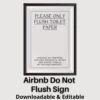Introduction
When it comes to enticing potential guests on Airbnb, your listing’s title plays a pivotal role. It’s often the first element they see, and it can significantly impact their decision to click on your property. In this comprehensive guide, we’ll delve into the art of crafting a captivating Airbnb title that lures more guests to your listing.
Understanding the Crucial Role of Your Airbnb Title
Your Airbnb title is not just a collection of words; it’s a snapshot of your property’s unique appeal. It’s the key to grabbing the attention of prospective guests and sparking their curiosity. In fact, after your cover photo, your title is arguably the most critical element of your Airbnb listing.
The Impact of Mobile Devices on Title Length
In today’s mobile-driven world, travelers often browse Airbnb on their smartphones or tablets. This shift in browsing behavior brings a new challenge—limited screen space. Mobile devices may truncate lengthy titles, displaying only the first few characters. Therefore, it’s vital to craft a title that conveys your property’s essence within the initial segment.
Crafting an Irresistible Airbnb Title
Now, let’s dive into the strategies for creating an Airbnb title that stands out and entices potential guests.

1. Symbolic Allure
Leveraging Symbols for Increased Visibility
One of the most potent techniques to enhance your Airbnb title is the strategic use of symbols. Symbols, such as stars (☆) or hearts (♥), can convey information efficiently, saving precious character space. For example, instead of saying ‘heart of downtown,’ use the heart symbol to convey the same message concisely.
Effective Symbol Usage: Less is More
While symbols can be powerful, it’s important not to overdo it. Restrict yourself to a maximum of three symbols in your title. Using too many symbols can make your title cluttered and less appealing.
2. Hitting the 50-Character Sweet Spot
The Favorable Trend Toward Longer Titles
Airbnb’s search algorithm favors listings with longer titles. While the maximum title length is 50 characters, it’s advisable to get as close to this limit as possible. Longer titles provide more information to potential guests, increasing your listing’s visibility.
Strategies for Maximizing Your Character Count
To optimize your title length, you might consider using short and meaningful words. Avoid unnecessary adjectives or descriptors that do not add value. For example, instead of ‘Beautiful, Relaxing Home Near Downtown,’ opt for ‘Relaxing Home Near Downtown.’
3. Adjective Elimination
The Pitfalls of Generic Adjectives
While adjectives may seem like a way to make your property more appealing, they often fall flat. Airbnb guests are savvy and tend to skip over generic adjectives like ‘Cozy,’ ‘Comfy,’ ‘Convenient,’ ‘Central,’ ‘Charming,’ and ‘Renovated.’ These words are overused and do little to distinguish your listing.
Why ‘Cozy’ and ‘Comfy’ Should Be Avoided
Consider the word ‘Cozy.’ What does it really tell a guest? It lacks specificity. Guests want to know what makes your property unique, not just what they can assume from any listing. If your space is genuinely cozy, describe why, such as ‘Intimate Fireplace Retreat.’
The Unique Context of ‘Luxury’ and ‘Renovated’
Words like ‘Luxury’ and ‘Renovated’ fall into a different category. They provide a bit more context but are still better suited for the property description. If your home boasts luxurious features, explain what makes it luxurious. For instance, ‘Heated Bathroom Floors’ communicates luxury more effectively.
4. Identity Management
The Dangers of Listing Codes
Property managers often use generic codes in their titles for easy identification. However, this practice can be off-putting to potential guests. Guests are looking for unique, appealing titles, not codes that serve the convenience of property managers.
Airbnb’s Internal Name Feature
Airbnb now offers a feature allowing hosts to assign an internal name to their listing, visible only to them. This feature helps property managers and hosts maintain their own identification systems without compromising the guest experience.
5. Highlighting Amenities
Showcasing Your Unique Offerings
Do you offer amenities that set your property apart, like a dedicated parking space or a private rooftop hot tub with stunning city views? Let potential guests know in your title. These amenities can be the deciding factor for many travelers.
Capitalizing on Features Like Parking, Rooftop Hot Tubs, and Patios
Examples abound. If you’re in a city with parking challenges but provide a parking space, emphasize it. Have a private rooftop oasis? Mention it. A backyard patio with a fire pit? Highlight it in your title. These details can significantly influence a guest’s choice.
Selectively Incorporating Amenities in Your Title
While it’s essential to include amenities in your title, be selective. Ensure that these features truly set your property apart from the competition. Don’t overwhelm your title with too many amenities, as this can dilute the impact.
6. Capital Letters: A Two-Edged Sword
The Perception of Capital Letters
Capitalizing words in your title might seem like a good way to stand out. However, it can sometimes convey low quality or “scammy” behavior. It’s crucial to balance visibility with readability.
Why Lowercase Is Preferred
Using lowercase letters maintains readability and ensures that your title doesn’t appear aggressive. Capital letters expand the space needed for each character on the screen, potentially reducing the number of visible words, especially on mobile devices. Avoiding capitals is recommended for a cleaner, more trustworthy appearance.

7. To Mention or Not to Mention the Neighborhood
The Neighborhood Dilemma
Including your neighborhood name in your title is a matter of debate among hosts. Some argue that it helps guests understand the property’s location better, while others believe it’s unnecessary.
When Neighborhood Names Are Irrelevant
If your property is in an unfamiliar neighborhood, mentioning it might not provide much value. Guests unfamiliar with the area won’t benefit from this information. It’s often better to save those valuable characters for more impactful details.
Exception: Neighborhoods with Contrasting Reputations
There’s an exception to the rule. If your property is on the border of two neighborhoods with drastically different reputations, it might be wise to specify your location. For example, if your listing is in the upscale part of town adjacent to a less desirable area, calling out the neighborhood can set expectations correctly.
8. Location-Specific Descriptors
Using Landmarks and Natural Features
Sometimes, using a landmark or natural feature in your title can be beneficial. If you’re close to a famous tourist attraction or a picturesque beach, consider incorporating it. However, exercise discretion, as Airbnb’s map already shows your location within a few blocks.
When Natural Attractions Matter
For properties near natural attractions like beaches, mentioning proximity can be crucial. Some guests specifically seek accommodations right on the beach, making this detail highly relevant.
The Benefit of Airbnb’s Exact Location Feature
Airbnb introduced a feature that allows hosts to choose whether to display their general location with a green circle or their exact location. For properties near significant attractions, displaying your precise location can be advantageous.
Conclusion
Your Airbnb title is a powerful tool for attracting guests to your listing. By understanding the nuances of crafting a compelling title, you can significantly increase your listing’s visibility and appeal to potential guests.
Follow these strategies, experiment, and continuously optimize your title to stand out in the competitive Airbnb marketplace. Remember, your title is your first opportunity to make a lasting impression, so make it count.
You may also like to read;
Photo Tips for More Reservations: Enhancing Your Airbnb Listing with Stunning Photography









